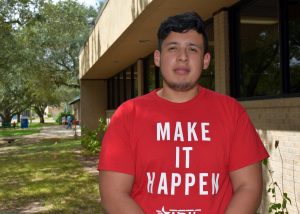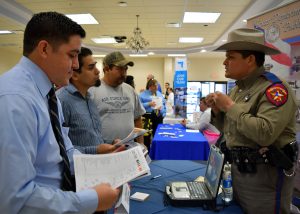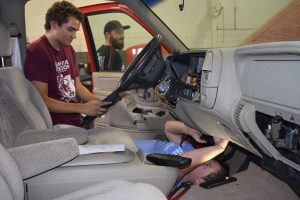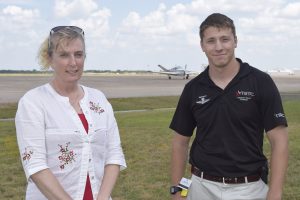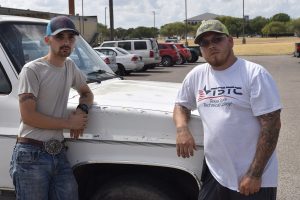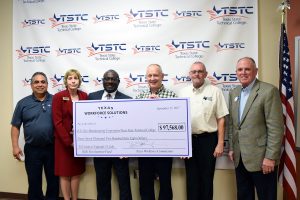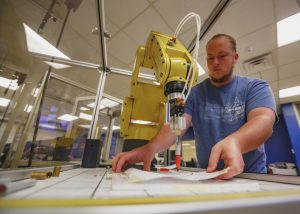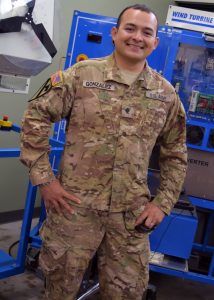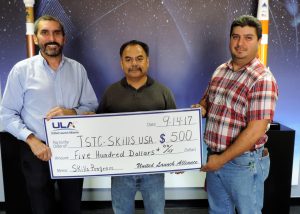(HARLINGEN) – It has been four years in the making, but the Continuing Education Emergency Medical Service – Paramedic program at Texas State Technical College has been nationally accredited by the Commission on Accreditation of Allied Health Education Programs (CAAHEP) – becoming the only accredited EMS program in Cameron County.
TSTC EMS Program Director and Advanced Coordinator Salvador Acevedo said that with national and state demand at its highest for paramedics, this national recognition gives them a greater opportunity for meeting industry need.
“I’m beyond excited. I’m so proud of the work everyone has done to achieve this recognition,” said Acevedo. “This was a lengthy four-year process and it has been validated.”
In addition to extensive paperwork, the program went through a peer review from CAAHEP’s board of directors and the Committee on Accreditation of Educational Programs for the Emergency Medical Services Professions.
With the accreditation in hand, set to take effect January 2018, Acevedo and his team can now offer an associate degree paramedic program, which will mirror the already accredited EMS program offered at TSTC’s Abilene campus.
“We’ve worked closely with the folks in Abilene for guidance with the accreditation process and the curriculum,” said Acevedo. “It’s been a great partnership between programs and now we can offer even more to our students.”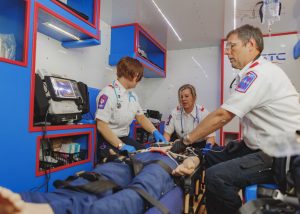
The plan is to combine the EMS program’s emergency medical technician (EMT) and paramedic certificate courses to one EMT-to-paramedic pathway.
The program will be two years long and students will receive training in the EMT basic, intermediate and paramedic fields. Students must successfully complete all coursework, clinical site training and an ambulance practicum to receive credit for the associate degree.
The pathway will also prepare students to take and pass the required National Registry of Emergency Medical Technicians exam, which will allow them to work anywhere in the United States.
“Students who enroll in this program can rest assured that they will be receiving the training they need from a national curriculum to have a successful career,” said Acevedo.
Acevedo added that every instructor, including himself, are seasoned paramedics who still work in the field, either full-time or part-time, ensuring that students in the program will always receive the most up-to-date information on medical protocols, additional certifications and skills used in industry.
TSTC paramedic student Morgan Putbrese earned her EMT certificate in July 2016 and is working toward her paramedic certificate, but said this new accreditation will take her education to the next level.
“With the program now being accredited I have the opportunity to earn my associate degree,” she said. “This is an exciting time for current and future students. This will help people in our field grow and continue their education.”
Once Putbrese completes the additional courses she needs for her associate degree she plans to work locally and give back to her community in the form of health care.
According to Acevedo, TSTC’s EMS program holds a 100 percent job placement rate. Students are either placed locally with companies such as South Texas Emergency Care Foundation (STEC), Med-Care EMS or Willacy County EMS, or elsewhere in the state with centers such as Austin-Travis County EMS.
“We’ve jumped the biggest hurdle and achieved accreditation,” said Acevedo. “The future of our program is bright and we’re looking forward to growing and offering more opportunities to our students.”
For more information on TSTC’s EMS program visit tstc.edu/harlingence/ems or call 956-364-4739.
